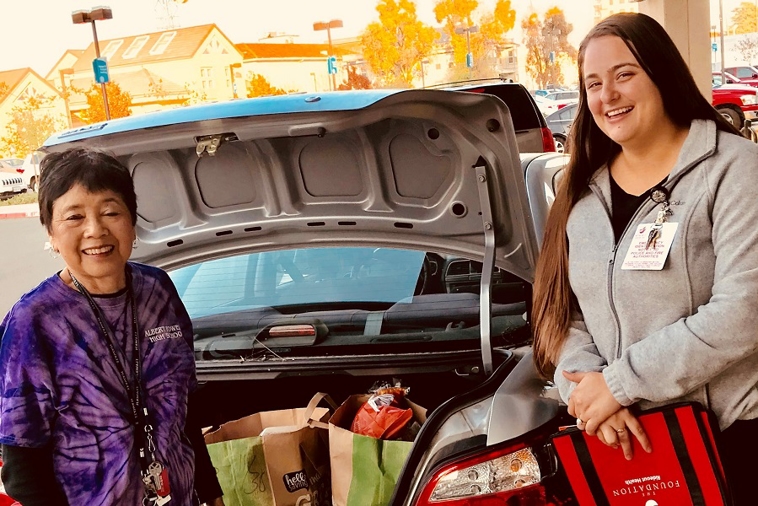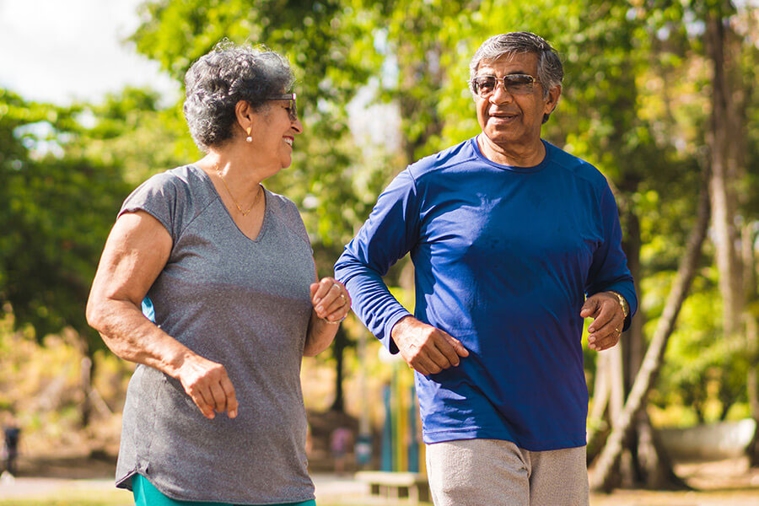
Adventist Health and Rideout implements screenings for food insecurity
For those of us who have reliable access to healthy foods, food insecurity is an issue we don’t often consider. But for many, access to nutritious food is a significant challenge. In fact, one in eight Californians are food insecure.
Food insecurity means that someone has uncertain or limited availability or access to nutritionally adequate foods. This lack of access is linked to an increase in chronic diseases, mismanagement of chronic diseases and hospitalizations, explains Kristine Cassidy, MBA, MA, RDN, director of Food and Nutrition Services & Community Nutrition Outreach for Adventist Health and Rideout. “Research has shown that food insecurity triggers behaviors that result in poor health,” Cassidy says.
In response to this community issue, Adventist Health and Rideout has developed a screening protocol to identify patients who are food insecure and connect them with both food itself and more resources to access food. With April being National Volunteer Month, there’s no better time to consider how we can contribute to helping our communities.
How does the program work?
Every patient who is admitted to Adventist Health and Rideout is asked specific questions about being food insecure. If those screening questions reveal a need, the case manager or social worker submits a referral to a local food bank or food pantry. Upon discharge, patients have 20-30 pounds of food waiting for them at the food bank or pantry.
“Often, someone who is food insecure lacks funds for adequate housing, utilities or prescription medications,” explains Cassidy. “Through screening patients for food insecurity, we’ve been able to identify additional ways in which we can help patients.” Cassidy shares that a crucial component of the program is to help patients learn how to access food in their own communities. In the Yuba-Sutter community, there are over 35 church food pantries, as well as the Yuba-Sutter Food Bank. “There are a lot of resources to help people in need, but the majority of patients we screen are not connected with the food bank,” Cassidy says.
From the program’s start in 2017, Adventist Health and Rideout has partnered with the Yuba-Sutter Food Bank, with leaders and associates volunteering at the food bank every month. Staff also participate in regular canned food drives and even have the option to purchase canned goods for the drives in the cafeteria through payroll deduction. At the end of 2019, the canned food drive collected around 2,500 pounds of food over a four-week period.
Food as medicine
“For many people, it’s hard to speak up about food insecurity,” Cassidy says. “But adequate nourishment is vital for our mental health, too. Food really is medicine.” Cassidy shares that one of their first emergency department patients was someone who called 911 due to low blood sugar. The patient was found to have absolutely no food at home. “That person was in the hospital for a few days, when having food at home could have possibly kept them out of the hospital.” Later, we learned that there was a food giveaway on-site at the patient’s apartment complex, but the patient was not able to access it during that time.
“Since the program’s inception, we’ve been able to help nearly 1,000 patients,” Cassidy says. “When I think of that number, I think of 1,000 people in our community who we didn’t know weren’t getting food. Knowing how much we’ve been able to help those people and improve our community is worth its weight in gold.”
Pictured above: Brenda Wong and Ashten Phillips. Brenda is a food pantry volunteer at St. Andrews Church in Yuba City; Ashten Phillips is a patient care coordinator for case management at Adventist Health and Rideout.



